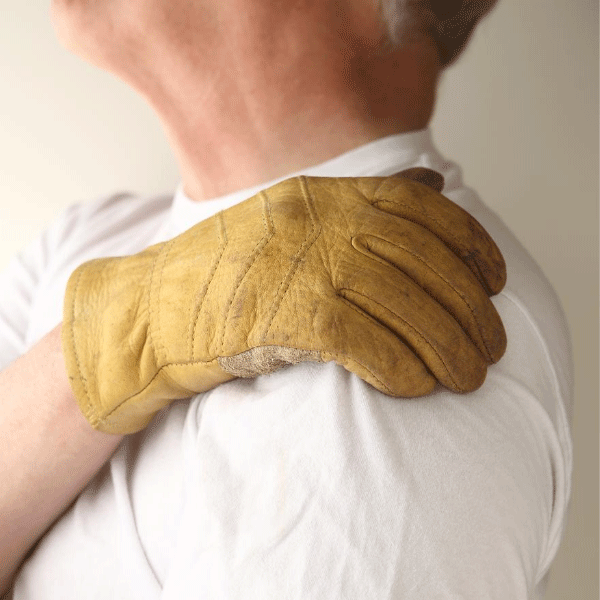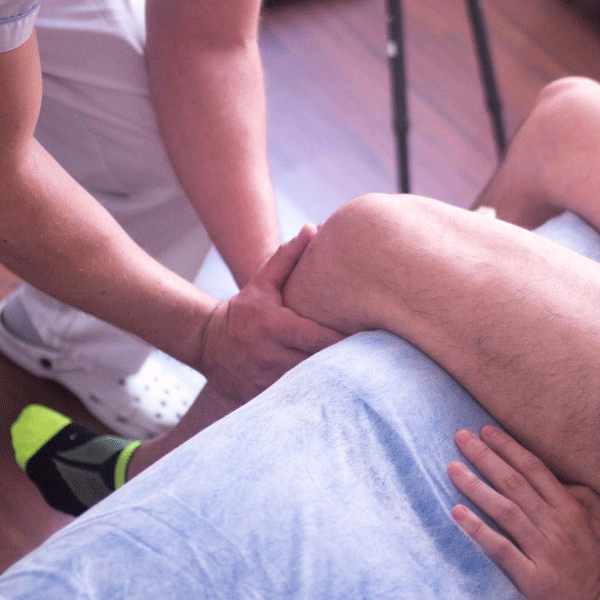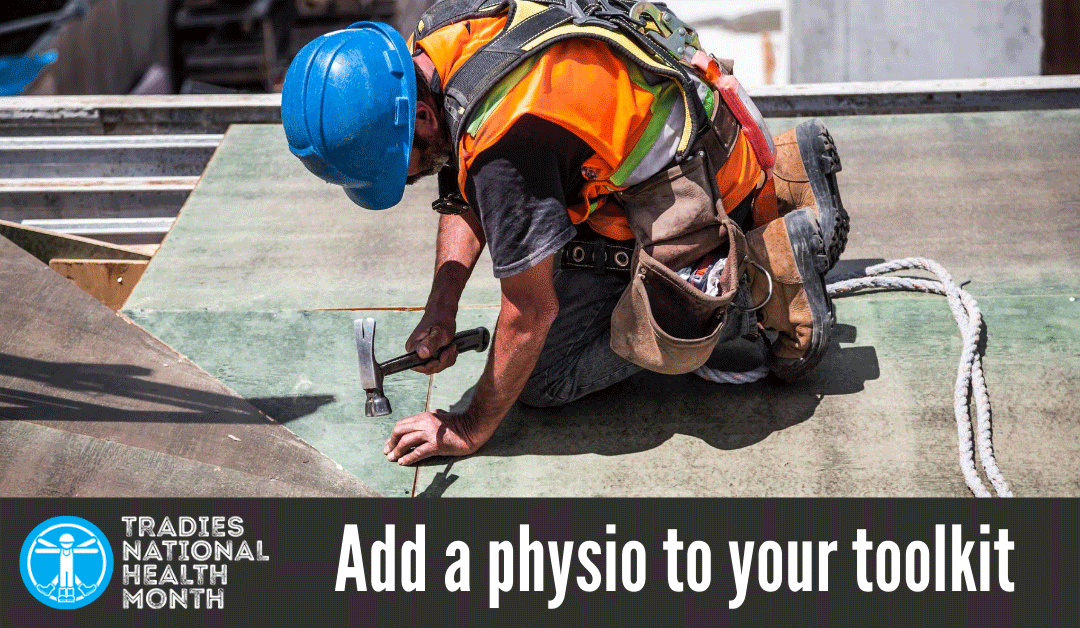August is Tradies National Health Month. Tradies National Health Month raises awareness of the health and injury risks affecting those who work in trade occupations including tradies themselves, their families, employers and the wider community.
Statistics show that almost 3 in 5 serious workplace injuries involve a tradie despite making up only 30 per cent of the workforce.
Through the awareness month, trade industry bodies, employees, tradies, family members and physiotherapists aim to provide resources and encourage tradies to look after their most valuable asset – their health.
The Most Common Injuries For Tradies
- Back pain is the most common injury experienced by tradies, as it is the part of the body involved in almost all the tasks that tradies undertake at work.
- Shoulder issues related to repetitive reaching and holding actions with the arms.
- Knee injuries related to repetitive bending to the ground.
- Ankle sprains related to working on uneven ground.

How To Reduce Your Chance of Workplace Injury
Most injuries to tradies occur as a result of ignoring pain and niggles, rushing at work, improvising with tools or equipment or being distracted by everyday tasks.
Tradies can follow a few simple steps to help reduce the chance of injury:
- Take a few minutes – when you are about to start a job take a few minutes to think it through. Ask yourself:
– Is this the best way?
– Am I using the correct tools for the job?
– Do I need any help?
– Is it safe to proceed?
- Check your mind is on the job – Be mindful of what else is going on in your life and how it can influence your work. Many tradies get hand injuries when their mind is not completely on the job. We all know the dangers of not paying attention while driving – the same goes when swinging a hammer or using a rattle gun.
- See a physio – Seek advice from your physiotherapist as soon as you feel a niggle. The earlier you see a physiotherapist for even the smallest injury, the quicker it will get better and the less chance your work will be impacted. Your physiotherapist can also give advice on how to prevent it from happening in the future.

- Stretching – Many tradies have to complete jobs that require either repetitive bending or awkward positions, so flexibility is really important to tradespeople. Improving flexibility requires regular stretching. Here are some great stretches to try:
– Standing hamstring stretch
– Piriformis stretch
– Pec stretch – to reduce the tightness when working on items in front of you all-day
– Forearm stretch or massage – to reduce the risk of injury from gripping tools all day.
Quick Tips for Tradie Health
- Warm-up each morning
- Pace your workload
- Communicate with your workmates
- Don’t put yourself at risk
- Speak up if you feel at risk
- Say ‘no’ if it’s unsafe
- Seek advice from your physiotherapist
- Manage injuries immediately – use the RICE method (rest, ice, compression, and elevation).
How Can Physio Help?
Physiotherapy can be enormously beneficial in helping to prevent and manage injuries. Physiotherapists are trained in human movement and are able to show you the best way to perform a task. This can be done in group training or on a one-on-one basis.
Your physiotherapist can help you with your fitness, flexibility and strength to ensure you are working optimally.
Fitness – This isn’t just about running or playing sports, it also includes eating well, sleeping well, maintaining a healthy weight and living a balanced life that includes time for things you enjoy doing with friends and family.

Flexibility – 5-10 minutes of stretching every morning before work can make a big difference and help you warm up for the day. It’s particularly helpful to stretch the quadriceps, hamstrings, back and shoulder muscles.
Strength – Our core stabiliser muscles act like a natural active back brace. Having good core stability can help to reduce back pain and other associated issues. Some simple exercises for 5-10 minutes at the start of the working day can help wake these muscles up and get them ready for action.
Your physiotherapist can assess your core muscles and make sure you are using them correctly for your tasks at work. Strength in your large muscle groups, such as quadriceps and glutes, will also aid you in performing tasks correctly.
Injury management – Despite your best efforts, jobs involving manual and repetitive tasks will, from time-to-time, result in aches and pains. It is best to see your physiotherapist early before the issue progresses to something more serious.
Your physiotherapist can advise you on how to manage your work without making the issue worse, along with providing treatment and exercises to assist in a speedy recovery.
Occupational health physiotherapists can also visit your workplace to assess your tasks and provide advice to help manage the problem, as well as prevent re-aggravation.
If you do experience any workplace injuries or niggles or would like more information on exercises to help you avoid workplace injury in the future please call Sandgate Physical Health Clinic on 3869 1099 or book online.
(Information provided by the Australian Physiotherapy Association Tradie National Health Month Campaign. For more information and resources visit their website)

